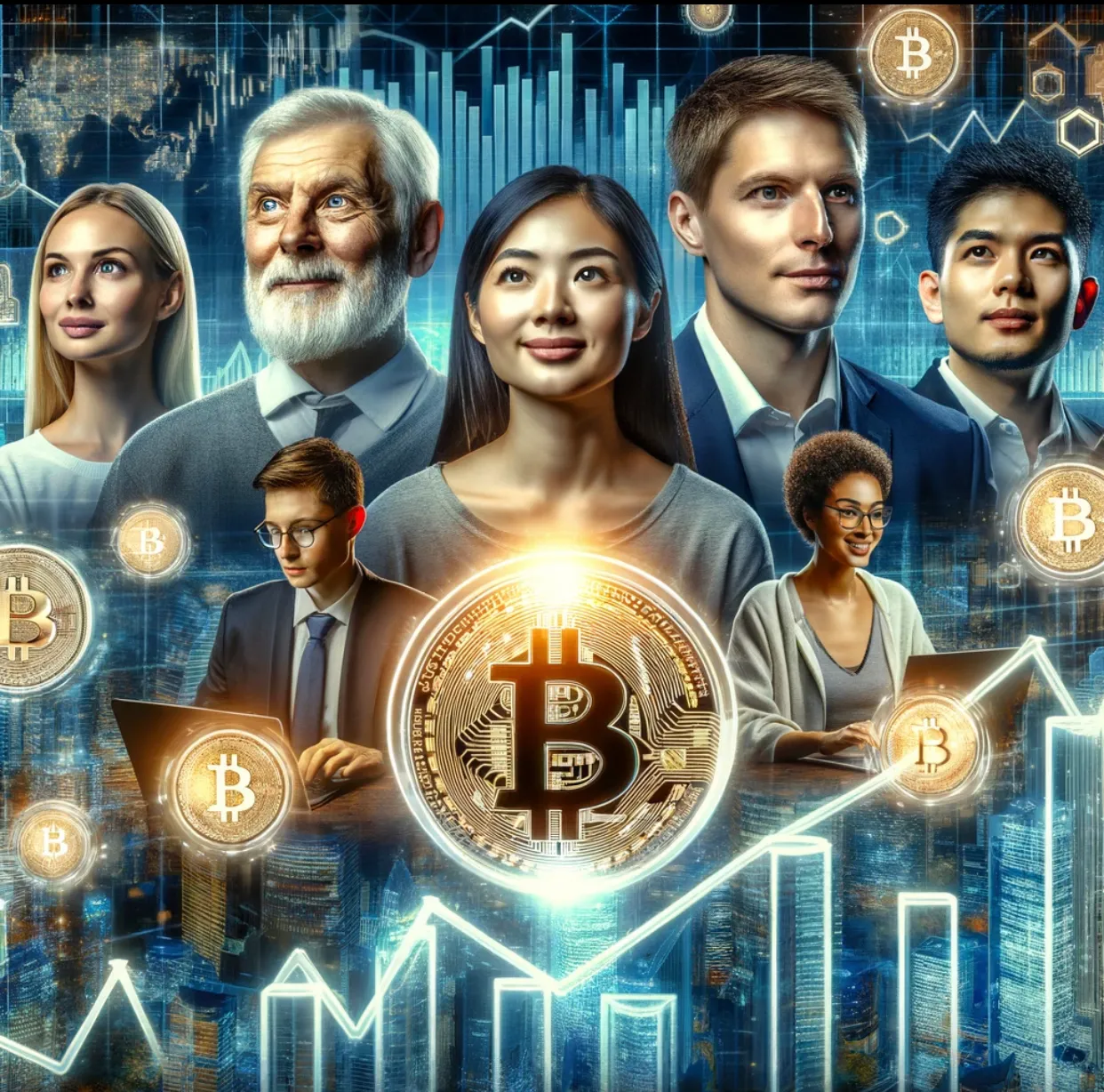
Understanding The What Ifs 🤔
If BTC ETF buy ins are swallowing up thousands of Bitcoins per day and are not selling, does this not create a new price floor for Bitcoin? If a new price floor is created, does this not mean that it’ll create some sort of stability? If Bitcoin becomes stable, does it affect traders who are dependent on volatility? What percentage of people that interact with bitcoins are traders? Does any of this even matter?
If Bitcoin becomes more stable, won’t it be a better tool as an edge to inflation? If it becomes a better tool as an hedge to inflation, won’t it be in demand for people in countries whose economies are being ridden by inflation, won’t this lead to more demand for Bitcoin if people use it to save?
Did you say digital gold?
If this happens, won’t Bitcoin solidify its street name as digital gold? If this happens, plus all of the above, doesn’t it mean that the price of Bitcoin may begin to see more highs than lows? Won’t this make Bitcoin the best performing asset in the world?
I haven’t even mentioned that Banks in America are now suing the SEC based on the fact that they aren’t allowed to offer Bitcoin to customers while asset management companies like BlackRock can. Are we expecting droves of banks to also start gearing up to grab Bitcoins at some point?

Banks Are Being Left Out
If the banks win their lawsuit against the SEC, what implications will this have for the global banking sector's approach to cryptocurrency? Will this pave the way for a new era where Bitcoin and other cryptocurrencies become mainstream financial products offered by banks alongside traditional savings and investment options?
Furthermore, as Bitcoin potentially becomes more integrated into the traditional financial system, how will this affect its decentralized ethos? Bitcoin was born out of a desire for a financial system free from central control, but what happens when it becomes part of the very system it was meant to circumvent?
What About Nation States?
Another intriguing question arises regarding regulatory environments across different countries. If Bitcoin solidifies its status as digital gold and becomes a recognized tool for hedging against inflation, how will various governments respond?
Will we see more nations adopting it as legal tender, like El Salvador did, or will there be a pushback, with stricter regulations being imposed to maintain control over national financial systems?
And let's not forget about the technological aspect. As demand for Bitcoin increases, so will the need for scalability and efficiency in its network. Will the Bitcoin community see more technological advancements and updates like the Lightning Network to handle this increased demand? How will these changes affect transaction fees and processing times, which are critical factors for both investors and everyday users?

Bitcoin EDUCATION
Will this drive a broader educational push around cryptocurrency? As Bitcoin cements its place in the financial landscape, there's a compelling argument to be made for the increased incentivization of learning about Bitcoin, blockchain technology, and the principles of decentralized finance.
This could very well lead to Bitcoin and cryptocurrencies being introduced into school curriculums, especially in economics and computer science courses. As understanding the basics of cryptocurrencies becomes more relevant to the financial literacy of future generations, educators might find it imperative to include these topics in their teaching.
Moreover, the normalization of Bitcoin as an investment option through ETFs could prompt more individuals, not just students, to seek out educational resources to better understand what they're investing in. Won’t this in turn foster a more informed and savvy investor base which helps maturity?
Finally
These questions have been on my mind, what I find most interesting is how the answer to one leads to the other, and every possible answer inches towards bitcoin becoming the greatest asset of our time.
Ill be more than happy to read your thoughts.
Thanks for reading.
images were generated with ai